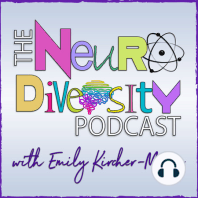42 min listen

Thinking Twice About Ways to Help Twice Exceptional Students | Psychology | 2e | Gifted
Thinking Twice About Ways to Help Twice Exceptional Students | Psychology | 2e | Gifted
ratings:
Length:
32 minutes
Released:
Feb 6, 2019
Format:
Podcast episode
Description
The systems in place for gifted kids in public education often fall short for 2e students. Sometimes 2e kids aren’t even identified with the limited testing resources of some schools. In the first of several episodes on twice-exceptionality this year, we talk with Chris Wiebe from Bridges Academy in Los Angeles CA about how they address the specific needs of twice-exceptional students, and how other school districts can help 2e kids thrive. About the guest - Chris Wiebe has a Doctorate of Education (Ed.D) from California State University in Los Angeles, as well as a Master of Arts in Philosophy and Literature (M.A.) from San Jose State University. He’s currently the High School Division Director at Bridges Academy in the Los Angeles area, and Managing Editor of 2E News. Host Emily Kircher-Morris has dual Masters degrees in Counseling and Education, and specializes in the area of giftedness throughout the lifespan. She founded the non-profit organization The Gifted Support Network, is the owner of Unlimited Potential Counseling & Education Center, and is the mother of three gifted children.
Released:
Feb 6, 2019
Format:
Podcast episode
Titles in the series (100)
Overcoming Perfectionism | Gifted | Intelligence | IQ | 2e: On episode six of Mind Matters, Emily talks with Lisa Van Gemert, the “Gifted Guru,” about perfectionism. We clear up some common misperceptions and discuss strategies to deal with the challenges perfectionism presents. Lisa Van Gemert has written... by Neurodiversity Podcast